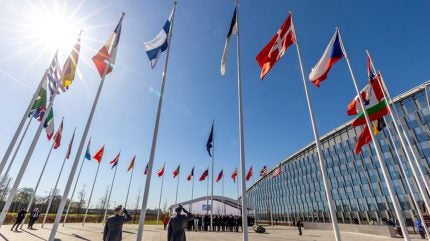
Nearly a year on since Finland’s accession to Nato, the alliance’s Defence Innovation Accelerator for the North Atlantic (DIANA) approved the Nordic nation’s request, submitted in July 2023, to build two test centres to explore emerging military technologies.
Nato’s accelerator programme is designed to equip businesses with the skills and knowledge to bridge deep tech, dual-use innovation between the commercial and defence markets.
DIANA focuses on emerging and disruptive technologies, such as artificial intelligence and quantum technologies that have dual-use potential, which means that they can be used both commercially and in the civilian and defence sectors. Most dual-use innovations nowadays have a market-driven origin in the civilian sector.
Finland’s state-owned research and tech company, VTT Technical Research Centre of Finland, will spearhead the project as it establishes an accelerator in Otaniemi, Espoo, on the southern tip of the country, in collaboration with Aalto University and the University of Helsinki.
The test centres will be established at the University of Oulu and the Otaniemi office of VTT.
One DIANA test centre in Otaniemi will specialise in cyber-secure communications, quantum technologies and space technologies, while the other test centre co-ordinated by the University of Oulu will offer companies opportunities to test 6G network technologies.
According to GlobalData’s thematic intelligence report on Quantum Computers (2024), quantum capabilities are theorised to have applications in sensing, communications, navigation, and electronic warfare, its enhanced computing power has fuelled much of the investment in quantum technologies.
Leading industry commentators estimated the quantum computing market’s size in 2022 to be between $500m and $1bn, rising to $10bn between 2026 and 2030, representing a compound annual growth rate of between 30% and 50%. Conversely, the fledgling sector is troubled by excessive hype and enduring engineering difficulties.
The services offered by the two facilities could include assessment of concepts and technologies developed by companies and support for their development.
“Digital communications systems play a vital role in modern warfare. Investing in different kinds of test environments and pursuing international research and development co-operation are central to verifying the military usability of new technologies,” said the Finnish Defence Minister, Antii Häkkänen. “We have a high level of expertise and a tradition of long-term investment in communication network and quantum technologies.
“Finland’s active involvement in DIANA opens up new opportunities, reinforces the technological and industrial base of Finland’s defence and improves the security of the alliance through national top expertise.”


